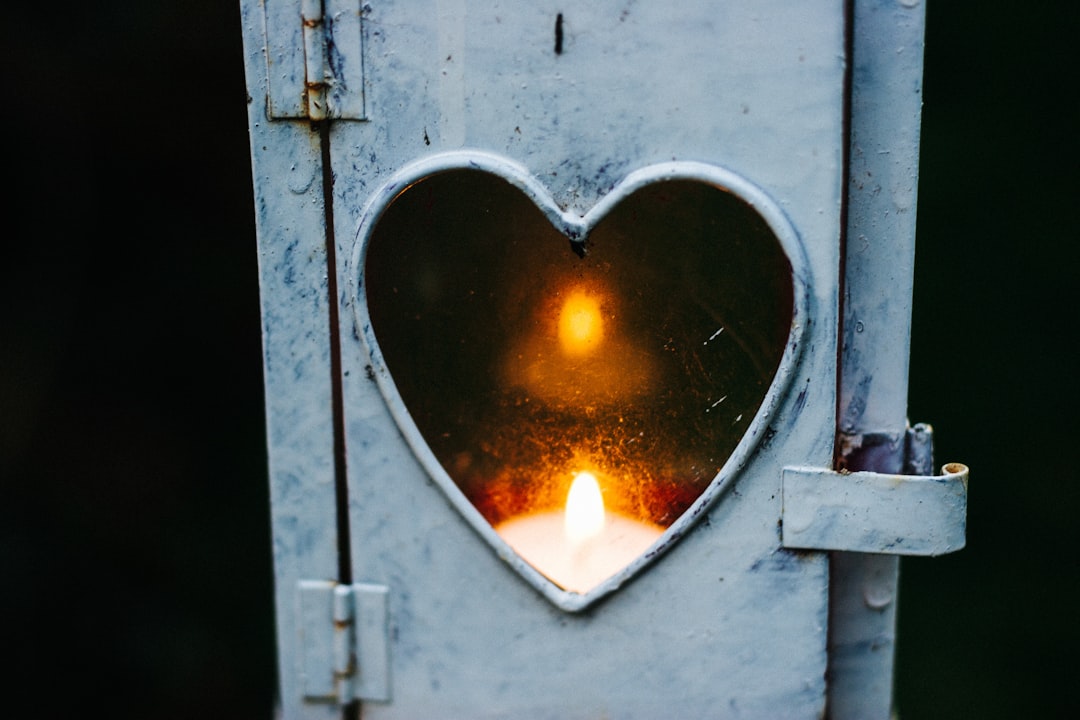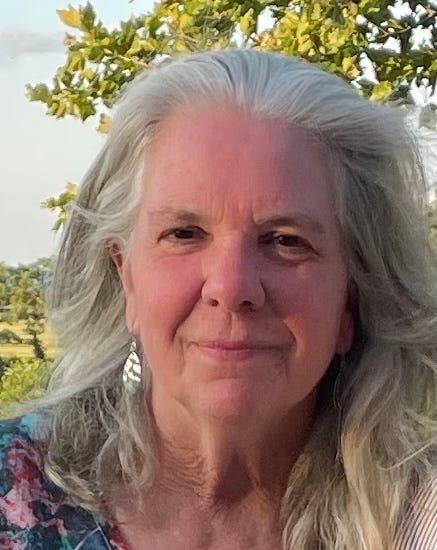In July, at a North End restaurant with tables spilling onto the sidewalk, I finally asked the question that had been buzzing around in me like a persistent fly from the start.
“So, you believe what exactly about the resurrection of Jesus?” I punched it out between mouthfuls of Bolognese. My tone was casual, not indicating that we were on the brink of something that could make or break us. Up until now, the story of the Son of God -- crucifixion, certain death, then a miraculous rising up -- had been only peripheral in my vision. Now it sat right on this table.
“That it changed everything. The women found the empty tomb, showing that he took on all of our humanity and dissolved the barrier between all of us and the Infinite.” He looked straight at me, as if conscious that this was the heart of the matter, his matter, and my reaction would show just how much tenderness I had.
Taken aback by his absolute certainty about a series of miraculous events that had barely fluttered across my screen before and had definitely never stayed long enough to warrant serious confirmation, I could only ask another question. Looking back, I see why he might not have seen this as an especially tender response.
“What exactly do you mean by redemption?” I’d heard the word, partly thanks to Bob Marley, but the concept was shaky. The red wine encouraged me to come clean, to shake out my ignorance as if it were a napkin.
“The process of being saved from death, from evil.” He said it with complete assurance, as if he was telling me that he took the Green Line out to Brookline. Did he think this was actually possible? In my experience on the planet thus far, I saw about equal parts good and evil, life and death. When we hit a tough patch, we try to be brave and hope (some people pray) for a reprieve. Most of us get some small saves along the way, but an Ultimate Save? No one located in a body that wears out eventually can get that.
The waitress came to pour water from a pewter pitcher she held up high, asking in a sparkly voice, “Is everything all right here?” She was probably Catholic, knew all of this already.
“Wow … but we definitely all still die, don’t we?” I was holding the table now, clinging to the literal, unable to fly into the ether of the spiritual.
“Yes, in a certain way, but when we know that we are all loved no matter what, that Jesus emptied himself so that we may more fully live, we gain a freedom that defies even the prison of death.”
Again, he looked deep into my eyes, having placed his essence in front of me, waiting for my response. I was flummoxed. On the one hand, I knew that he was one of billions around the world who believed this; on the other hand, I couldn’t pretend that I was one of them. The sweep of my past 30 years provided no such conviction. I had always felt loved; I just never associated that sense of security and acceptance with Jesus. For a moment, I flinched. “That must be an amazing feeling,” I finally said, drawing upon my reliable supply of curiosity about what others believe without jumping in to swim in their particular pools myself.
The difference this time was that I was powerfully drawn to this man. Watching from the edges, withholding my own endorsement, suddenly felt like going dangerously counter to giving myself over to love.
“It definitely is,” he said quietly, candles flickering on the tiny table. “Can you possibly imagine it?”
I didn’t answer, not being able to imagine how resurrection actually happened. But I didn’t have to imagine how my own life was getting more beautiful by the minute; that was an unmistakable fact.
****
I had a lot of questions about his faith; he had not so many about whatever he thought I had that might resemble faith. Years later, he would explain this ongoing discrepancy by pointing out that I tend to release what’s on my mind easily anyway, not waiting for an invitation. Practically drawing breath from a set of tenets that were so central to his identity, he tried to convey the depth of them to me in a few easy lessons, since I had asked.
I remember one conversation when he was trying to teach me about the overall rhythm of the Christian calendar—what comes before what and leads to what. He wondered out loud whether I was more of an “Incarnation” (the birth of Jesus as both divine and human) or a “Transfiguration” (Christ’s appearance before his disciples in radiant glory) person and decided, maybe based on my mentioning that I liked the Christmas season best of all, that it was the former. Meanwhile, as soon as he uttered the word “Incarnation,” my mind was going back to those packets of pale chocolate malt “Carnation Instant Breakfast” that my brothers and I once tore open on school mornings. My associations didn’t quite click the way his did.
The more he brought out specific pieces of his faith, the more I was struck both by his own certitude and the implausibility of it all to me. We are all sinners, and sin is a form of death; Jesus died to take on our sins, to free us from them, as if we are peeling off one used-up skin and starting with another -- over and over and over again, in an endless cycle. It wasn’t that I disagreed with his way of seeing, exactly; but it all seemed too neat, like a wrapped-up package, and definitely unscientific.
The chasm between us was, in many ways, vast. Sometimes, when I probed too much, I sensed that my voice sounded to him like I was shouting across the divide, a fruitless effort. “I just don’t get how he could have cured lepers, with just a touch!” There was no easy bridge to walk across, but there was a kind of electric wire dangling there in space, and he knew it. “Look, Polly, no matter what I say, it won’t sound rational to you, so can we just give it a rest?” Occasionally, his irritation level rose, and he snapped at me, or his head drooped momentarily, with disappointment.
And yet he stuck with me, either looking past my disbelief, or finding something else there, something that could stand in for it. I began to wonder whether maybe he knew something about me that I didn’t.
Rather than finding fault with me for not knowing people like Zacchaeus and Ruth, Leah and Luke, for not understanding what or who the Almighty could be, he said that he believed God had brought us together, and it was OK if I didn’t see it that way. At first this image seemed so weird, as if some unknown (to me, anyway) force was pulling strings; but then I decided to relax and just hope that nobody messed with this amazing thing we had going so far. We each felt a magnetic pull that, he was convinced, was overseen by an Invisible Third Party and, I was equally convinced, had only to do with our own bodies and souls. I wouldn’t have been able to say what a soul actually was, but I knew it was just as real as a beating heart.
For the first time in my life, though, I had to confront whether or not I could cobble together my own package of important beliefs, some structured way of seeing the world and human existence. Had I just been rolling around, more or less thoughtlessly, like I did when buffeted by the strong ocean waves on Long Island’s South Shore, ending up with sand in my bathing suit, without any clear vision of what really mattered and why? Suddenly, I looked incompletely formed to myself. Not fully baked. Not autonomous enough. What could I do, short of adopting his particular Episcopalian frame of reference directly upon receiving it, to alleviate this imbalance? What would I have ready to toss into a spiritual bank account that our pooled resources might become?
About the author
Polly Ingraham has worked primarily in high schools, both as an English teacher and a School-to-Career counselor. She and her husband live in Concord, NH; their three adult children are elsewhere. In 2018, she completed Grub Street’s Memoir Incubator program and continued working to finish her book manuscript. She has attended workshops at the Madeline Island School of the Arts, the New York State Writers Institute, the Wesleyan University Writers Conference, and the Iowa Writers Festival. Her work has been published in the Boston Globe Sunday Magazine, Tikkun, Dartmouth Alumni Magazine, and on National Public Radio. She is a contributor to FAST, FIERCE WOMEN, an anthology of flash non-fiction published in 2022. Her blog is: https://www.pastorswifeblog.com/






Gently powerful, especially for those of us who see the good and the bad that can come from doctrinal religion. Faith, "or something that can stand for it," describe for me a person's two choices.
This piece resonates with my rising-but-not-fully-baked sense of myself. Well done! I want to know whether Polly married her inquisitor, and that's why she's now a pastor's wife. Also, I loved the Carnation Instant Breakfast reference!